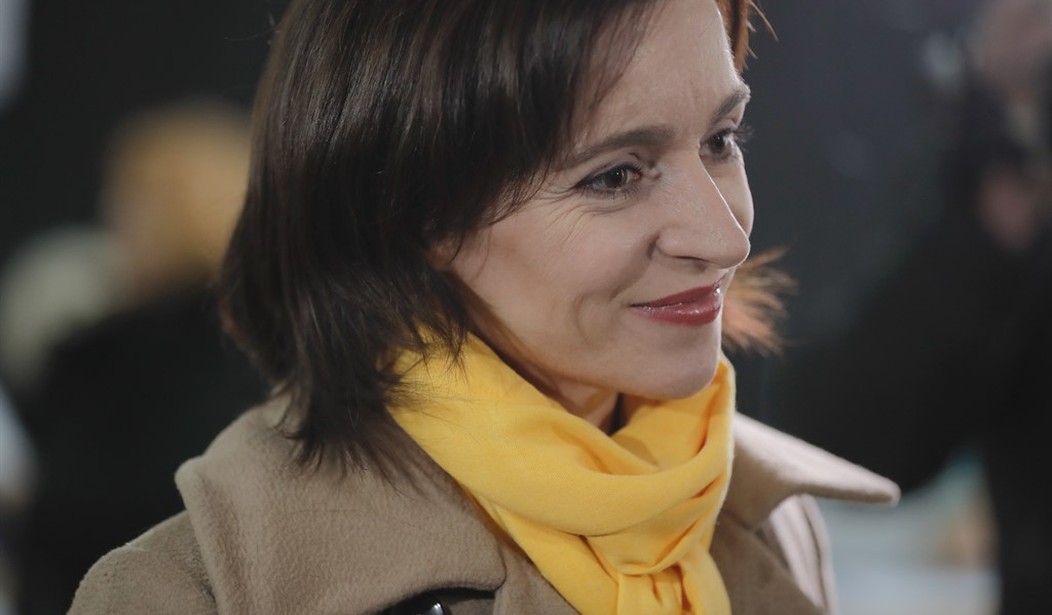According to a report in the Russian government mouthpiece TASS, Vladimir Putin has an interest in annexing or conquering the former Soviet republic of Moldova after Russia has absorbed a large slice of Eastern Ukraine.
The comments from Rustam Minnekayev, deputy commander of Russia’s Central Military District, reveal for the first time Russian President Vladimir Putin’s appetite for more conquests after Ukraine — a move that would be a clear escalation and would inevitably require a response from NATO.
Moldova is the poorest nation in Europe, but its value lies is in its location. The Moldovan government has long been nervous about Transnistria, a thin sliver of territory that is controlled by at least 12,000 separatists and Russian troops. The separatists could easily strike out from Transnistria to assist Russia in its bid to control Eastern Ukraine.
Minnekayev said capturing Ukraine’s east and south would create a “land corridor” to the Crimean Peninsula — which the Kremlin annexed in 2014 — and give Moscow influence over “vital objects of the Ukrainian economy,” according to the Russia state media outlet Tass. It would also provide “another way out to Transnistria,” Minnekayev said, referring to a thin strip of land that runs along Moldova’s border with Ukraine that functions as a separate nation, though it is not recognized as such, even by Russia.
Minnekayev’s comments came at the end of another grim week in Ukraine — particularly in the eastern Donbas region, where Kremlin forces have refocused their fire in recent days. The devastated southern port city of Mariupol remained under siege, with Russia vowing to trap remaining Ukrainian forces that have been holed up in a steel plant there.
So far, Putin’s well-laid plans for Ukraine have failed to achieve most of their objectives. The Russian army should perform better in Eastern Ukraine as the terrain favors a war of maneuver that will benefit Russian armor, and a large part of the population in Donbas is of Russian heritage, although it’s unclear how much sympathy there is for the Russian army.
The Moldovan Foreign Affairs Ministry said in a statement to The Washington Post that it had summoned Russian Ambassador Oleg Vasnetov on Friday to express “deep concern” over the commander’s remarks.
“His comments are unfounded and contradict the position of the Russian Federation supporting the sovereignty and territorial integrity of the Republic of Moldova,” the ministry said.
Moldova is an annoyance for Putin, nothing more. Once the Ukraine issue is settled, he can decide its fate. Even if Moldova remains independent, Moscow will exercise a great deal of control over the country. Russia already supplies Moldova with 100% of its energy needs.
Russia has yet to concentrate any forces near Moldova. That won’t last long.
Russian forces have so far been unable to seize ground in the areas close to the Moldovan border, including the strategic port city of Odessa. Ukrainian officials initially feared that Moscow would use Transnistria as a staging ground for attacks on Odessa, but no such assault materialized.
It’s not that Russia is respecting Moldova’s neutrality, enshrined in its constitution and scrupulously followed since 1990. At the same time, most Moldovans recognize the strategic reality of their superpower neighbor and try not to antagonize them.
The geopolitical tightrope the country is forced to walk, in the eyes of many Moldovans, means its future is intertwined with Russia’s. Mr. Trofim, the winemaker, for one, said that almost half of his business depended on Russia, Ukraine and Belarus.
As he looked at the winery’s vast, neat gardens, empty but for a few visitors, he said that he was appalled by what Russia had done in Ukraine, but that he could not condemn anyone forever.
“I cannot say I will never do business with Russia,” Mr. Trofim said. “It is a matter of the well-being of my company.”
There are still enough Moldovans who wish to be independent and will fight to keep that independence. Russia will know they’re in a war. But Moldova, with a population of barely 2.5 million people, won’t be much of a challenge for the Russian military.










